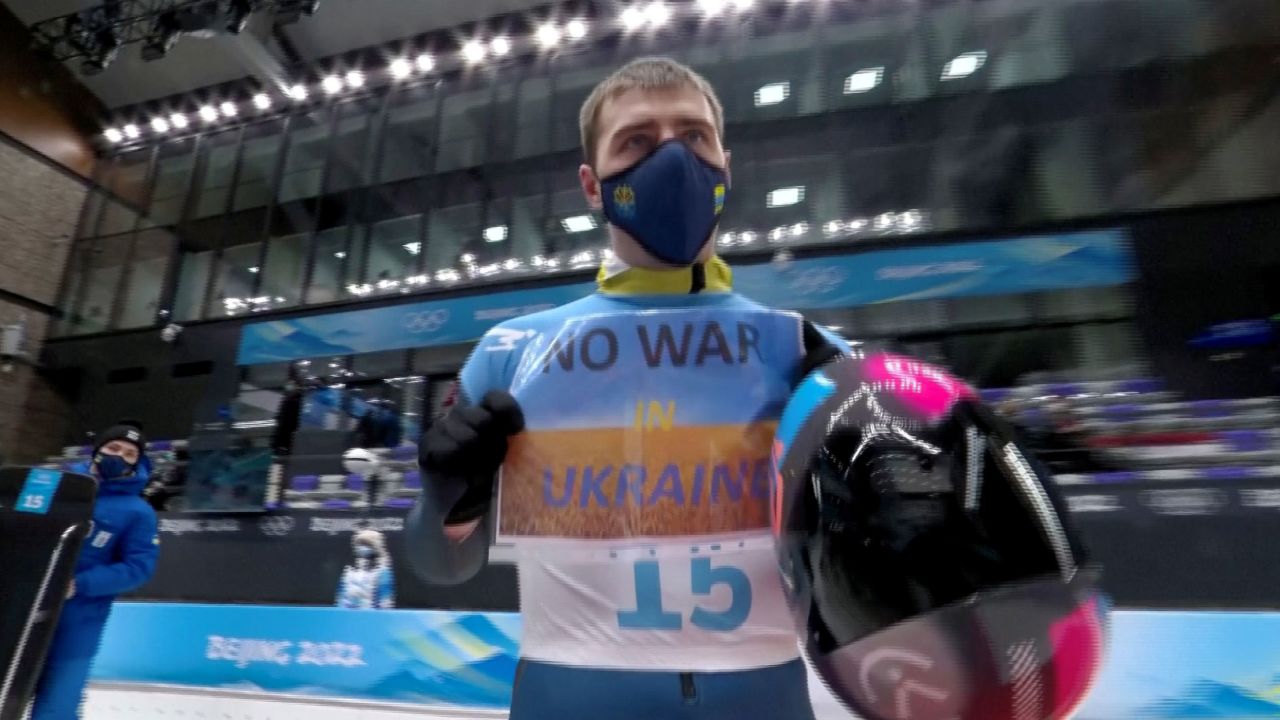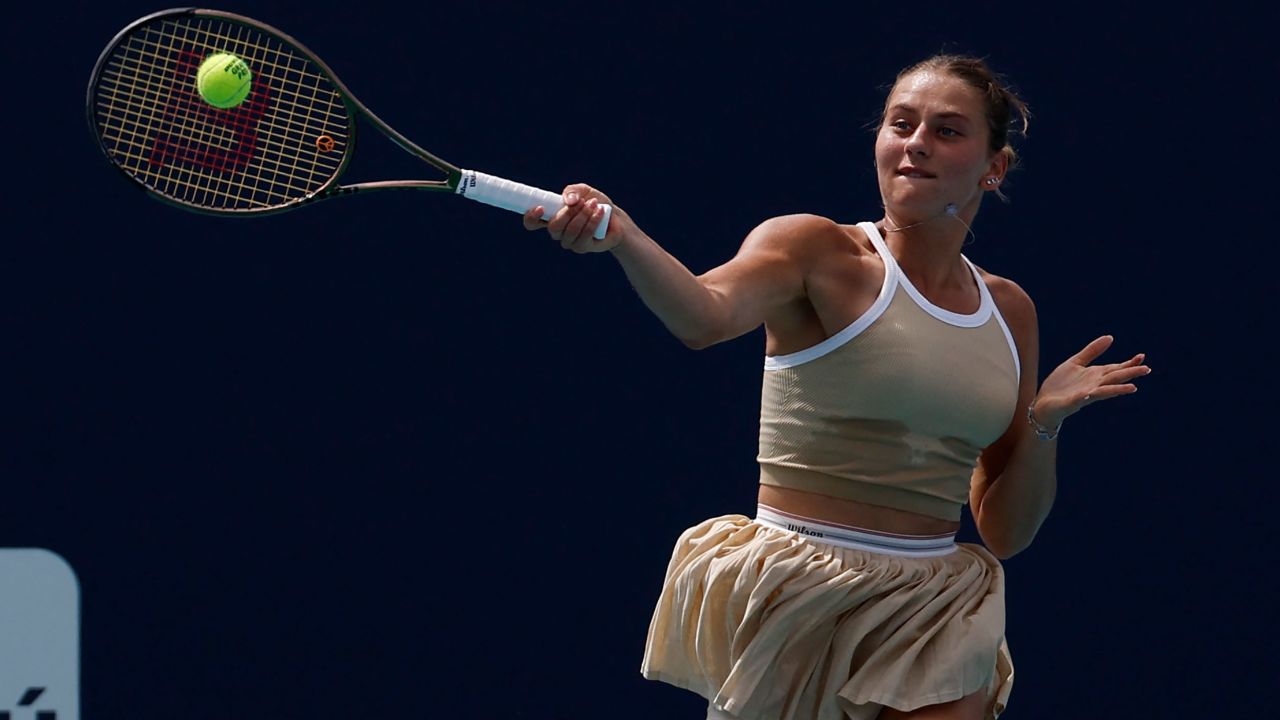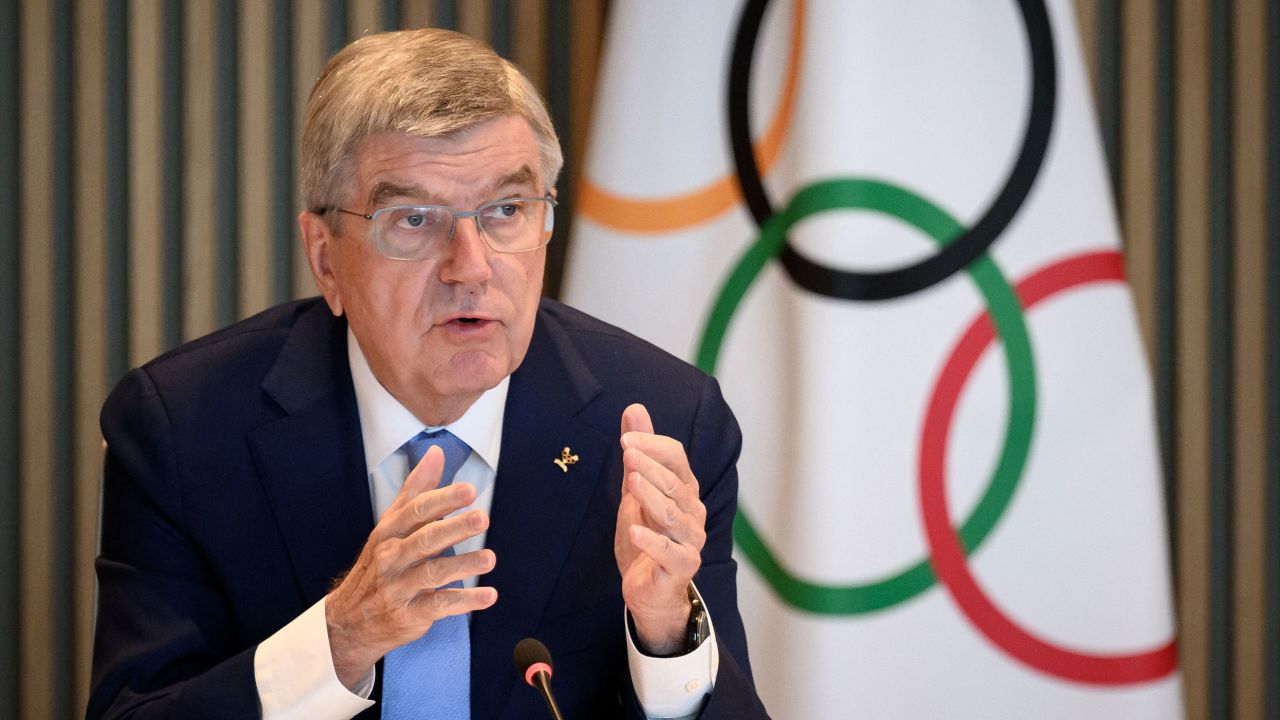CNN —
The International Olympic Committee’s (IOC) decision to allow Russian and Belarussian athletes to participate in international competitions comes as a “slap in the face” to Ukrainian skeleton star Vladyslav Heraskevych.
On Tuesday, IOC president Thomas Bach outlined new guidelines that would allow Russian and Belarusian athletes to compete as neutrals, paving the way for their return.
Athletes from the two nations were banned from most international competitions in February 2022 after Russia’s invasion of Ukraine and following the IOC executive board’s recommendation.
Heraskevych, who shot to fame at the Beijing Winter Olympics last year when he held up a “No War in Ukraine” banner to protest the impending Russian invasion, said the decision is a shocking one for him and his compatriots.

The IOC’s executive board began a three-day meeting on Tuesday, and the 24-year-old Heraskevych told CNN Sport’s Amanda Davies: “Athletes’ voices should be heard, we’re open and we’re able to speak in public. We’re not hiding behind some private meetings or private calls or behind some commissions.”
According to the IOC’s latest recommendations, athletes with a Russian or Belarusian passport must compete only as individual neutral athletes and meet all anti-doping requirements, while those who support the war or are contracted to military or national service cannot compete.
The IOC also said that a decision about the participation of athletes with a Russian or Belarusian passport at the Paris 2024 Olympic Games would be made at a later stage.
The Kremlin has described those guidelines as containing “elements of discrimination.”
“Such recommendations (by the IOC) were characterized as containing elements of discrimination, which is unacceptable,” Kremlin spokesperson Dmitry Peskov told reporters on a conference call Wednesday.
“As for us, we will continue to defend the interests of our athletes in every possible way, and, of course, we will continue contacts with the IOC precisely to protect the interests of our athletes.”
Heraskevych spoke to CNN ahead of a press conference in which he and other athletes reacted to the IOC’s decisions.
He was joined by Ukrainian tennis star Marta Kostyuk, who has been outspoken in her opposition to Russian or Belarusian opponents, refusing to shake hands in some instances.
Heraskevych says that one danger he fears over the reintegration of athletes from Russia and Belarus is the use of images of nations competing together being used for propaganda.

According to Heraskevych, the Ukrainian National Olympic Committee Athletes’ Commission only heard from the IOC last week, having heard nothing from them for almost a year. CNN has reached out to the IOC for comment.
CNN has reached out to the IOC for comment.
Earlier this week, more than 300 active and former fencers wrote to the IOC urging the organization to uphold sanctions against Russian and Belarusian athletes, saying that allowing them entry back into international competitions would be “a catastrophic error.”
Polish fencer Michal Siess said that allowing “neutrals” to compete is not good enough for many in the athletic community.
“I mean, what does it mean being neutral? I can only speak for fencing but I didn’t hear any single voice from fencers from Russia saying they are against the war or something like this,” Siess told CNN Sport’s Don Riddell.
“A lot of them are in the Russian military. So it sounds good being neutral but we are a little bit disappointed because we think that there must be consequences because what kind of message do we send from the sports world to the world generally? Like: ‘Hey, you started the war but you’ll still be welcomed with open arms.’ So this is something that we don’t agree on.”
One suggestion has been that Ukrainian athletes could boycott international competition in reaction to the announcement.
However, Heraskevych doesn’t like that decision as it hamstrings his country while Russians are left free to compete.
“Of course, in some sports and with some athletes and me also, I can’t imagine being on the stage with Russian athletes who are supporters of this war,” he said. “For me, this is not okay and I don’t want to do it.
“But overall, if just Ukraine does a boycott, it makes no sense because then Ukraine loses its sport, like the whole sports area, and then we will just change places with the Russians now. We will be the ones excluded. Also, Ukrainians suffer from the war and also we will suffer from the boycott. So only Ukrainian athletes will suffer.

“And of course we will give freedom for Russian athletes to push their narratives on the international sports arena with their fellow colleagues. We will just sanction ourselves as I see it. So I would say its right to give this decision to the athletes, not to the federations, not to some structures, just to the athletes. Athletes should decide their own road.”
Last month, the US and more than 30 other “like-minded” countries backed a proposed ban of Russian and Belarusian athletes from competing in international sports, according to a joint statement.
Meanwhile, Ukraine’s sports minister said in January the country would not rule out boycotting the Olympics if Russian and Belarusian athletes are allowed to compete at Paris 2024.
Last week, World Athletics president Sebastian Coe announced Russian and Belarusian athletes will still be excluded from World Athletics Series Events “for the foreseeable future,” reaffirming the organization’s March 2022 decision.
It comes as the United Nations High Commissioner for Human Rights has cataloged thousands of cases of civilian casualties in the Ukraine conflict in the six months to the end of January, along with cases of torture, rape and arbitrary detention.
In its latest report, issued Friday, the OHCHR said that “the human rights situation across the country remains dire amid the ongoing armed attack by the Russian Federation against Ukraine.”
It had “verified numerous allegations of arbitrary deprivation of life, arbitrary detention and enforced disappearance, torture and ill-treatment, and conflict-related sexual violence.”


